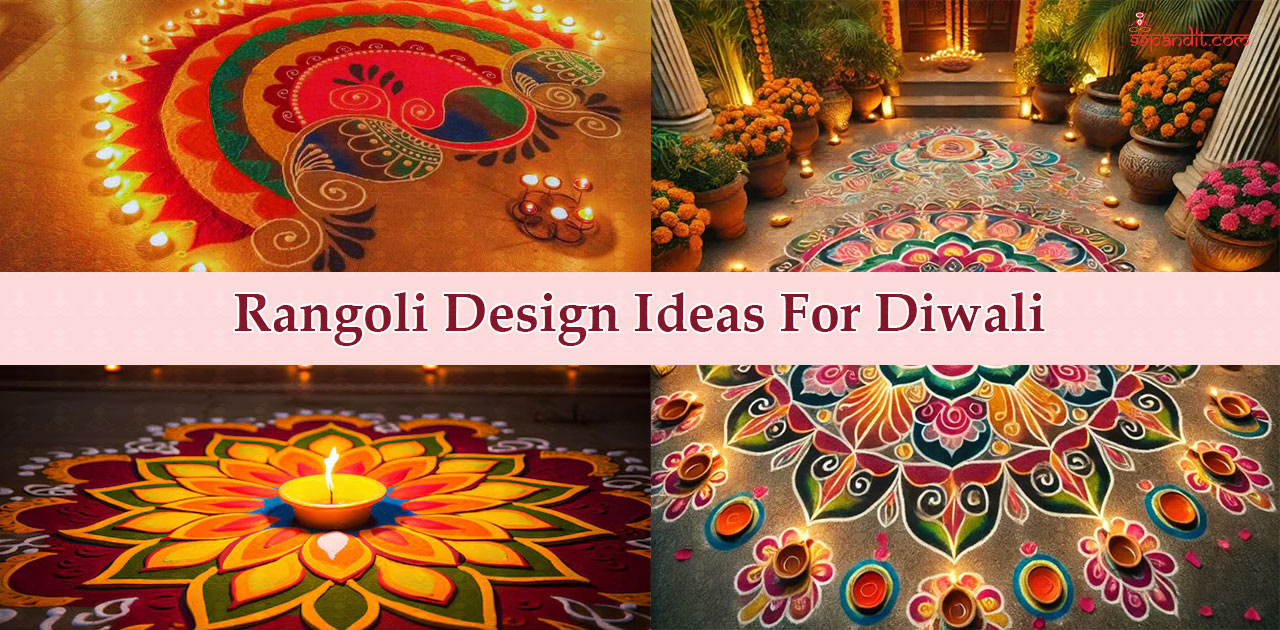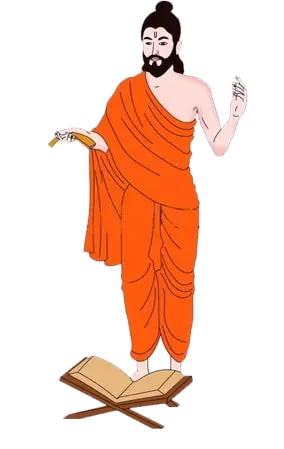Papankusha Ekadashi 2026: Date, Vrat Katha, Parana Time & Importance
Papankusha Ekadashi ko Ashwina Shukla Ekadashi bhi kehte hain. Papankusha Ekadashi 2026 me 22 October, Monday ko manayi jayegi. Ye…
 0%
0%

Rangoli Design for Diwali: Many festivals of India are complete with Rangoli, especially the festival of Diwali. On this festival of lights, people especially decorate their homes. Everyone uses lights, diyas, and rangoli.
Earlier, on Diwali, only diyas and lights were seen in the markets, whereas today, you will find particular types of rangoli powder for Diwali everywhere.

You will also find many rangoli designs for Diwali on social media. The colours of rangoli and new tools and sieves have come into the market to make it, with the help of which gorgeous rangoli can be made quickly.
Usually, flowers, peacocks, or similar patterns are used in rangoli, but if you want to create a design that is different from this type, we can help you. People make beautiful Rangolis on Diwali to brighten up their entrances.
It is believed that making a Rangoli outside the main entrance or pooja room signifies the welcoming of Goddess Lakshmi and guests inside the house.
This practice has been going on for centuries now. In this blog, you will find one-of-a-kind rangoli patterns and designs that are easy to make and look completely new. Let’s get started!
Rangoli design is a form of art that people, especially in India, draw in front of their homes on special occasions and festivals.
Rangoli is made outside your house on festivals or any auspicious occasion, especially during Diwali.
Colourful powder, flowers, leaves, rice flour, etc., are used to make beautiful Rangoli Designs on Diwali.
Rangoli, made of different designs and shapes, is made outside the door of the house, which further enhances the beauty of the house.
Rangoli is a unique reflection of Indian culture. It is not only an art but also a reflection of the Indian attitude towards religion, culture, and life.
In terms of its history, the practice of making rangoli is centuries old. There are many stories about how rangoli started, but it cannot be said with certainty where it began.
But rangoli is an essential part of our Indian culture. In old times, making rangoli was a daily activity.
Rangoli was made outside the doors of the house every day. However, gradually, its practice ended, and now it is made only at festivals.
Rangoli has been made on the festival of Diwali since ancient times. The word Rangoli is a Sanskrit word from the ancient point of view, which means expressing emotions through colours.
In India, Rangoli is also known as Alpana in many places. Now, if we talk about making Rangoli, then Rangoli is made using flowers, colours, Gulal, and flour. And its design is made in the Diwali puja.

At the entrance of the house, many designs, such as Rangoli, Lakshmi ji’s footprints, a Swastika, a Lotus flower, and a Peacock, are made.
According to Hindu religious texts, making Rangoli before starting any auspicious work creates positive energy, and if there is any negative energy at that place, it is also destroyed.
Making Rangoli at the main door is considered auspicious, especially for the arrival of Goddess Lakshmi in the house. By doing this, the blessings of Goddess Lakshmi always remain.
The second belief is that when Lord Rama returned after spending 14 years in exile, people in Ayodhya welcomed him with great pomp by making rangoli and lighting lamps in every house.
Every Rangoli is a beautiful artwork. Thus, to make Rangoli a beautiful piece of art featuring unique designs of Rangoli on Diwali that can beautify the home décor, there are several vital ingredients required, such as:
While there are common forms and patterns of rangoli, the kinds of rangoli Designs for Diwali and patterns know no limit.
It is such a famous artwork that various Rangoli contests are held in schools, offices, and organizations to make Rangoli more popular among the young generation.
Look at some of these beautiful pieces of Unique Rangoli Designs for Diwali below.
The peacock is our National bird and is considered a symbol of happiness and joy because of its colourful, rich feathers of yellow, blue, and green.
It is an incredible sight when a peacock dances by sprawling its feathers, and it is worth watching.

Each one of us Indians has taken inspiration from it for generations, assuming it to be a bird of happiness. The peacock rangoli design in your home looks mesmerizing and spiritual.

Flowers are the perfect representation of happiness and joy! If it’s about choosing Rangoli designs for Diwali, then Floral Rangoli design is the best to choose. You can create diverse styles of flower rangoli designs and make your home look beautiful.
Ganesha is said to bring prosperity and happiness, and therefore, coming up with the Ganesha Rangoli on Diwali is considered more than a lucky charm.
On Diwali day, Ganesha and Lakshmi are offered puja with the expectation that joy, happiness, and merriment are welcome at home.

While the drawing of the Rangoli is believed to bring auspiciousness very much into vogue around the year, particularly during Deepavali, an invitation for a Ganesha Rangoli is complete good luck.
It has remained a widespread cultural practice in India for as long as it can be and remains so to this day.
Even now, Holi, Onam, Diwali, and other festivals can only be completed with a touch of different colours on every entrance rangoli in every household.

A corner rangoli design is one of the preferred choices in this busy world, where most apartments are tiny.

Let’s make a slight change this year. Instead of putting Rangoli in the centre or at the side of your floor entrance, Border Rangolis enrich not only the beauty of your doorway but also your entire floor with colourful organic colours or even flowers.
It’s also good to make attractive coloured rangolis, which can be made in front of the door or the puja room in your house. This rangoli with lamps, flowers, and leaves will add beauty to the house.

The above tales give an impeccable justification for the popularity of such rangolis, especially on the occasion of Diwali. For such colours, you will not have a problem finding them in the market.

You can also make a rangoli with the help of old bangles, grains like wheat, jowar, millet, ragi, lamps, and various colours, and make Ganesha shapes on it with peepal leaves. Your rangoli will look unique, and everyone will praise it.
If you want to make some special rangoli, you can do it with the help of rice lying in the house. If you wish to, then colour the rice in different colours a day or two before and dry it in the sun. Then make rangoli with it.

Simple Red and White Rangoli—If you are going to make a simple rangoli this Diwali, you can make a round-shaped rangoli with a crisscross pattern using white and red colours.
Artificial Rangolis are so popular these days and are mainly a good choice for people who do not have a desire to design them on their own.

Unlike other types of Rangoli designs, where we get to employ coloured powders and all that you see, artificial Rangolis are designed using beads, ornaments, leaves, Rangoli stickers, and other materials.
Enhance your home with rangoli stencils that are quickly delivered to your doorstep. All these tools make the intricate art almost as simple as using software with an interface.
Even if you are a first-timer at programming, using some of these tools, you may be able to master the trade quickly enough.

All that is needed is to put the stencil, dust colourful pigments, and remove the stencil to see stunning patterns. People can always choose from traditional designs to modern and creative ones.
According to Hindu mythology, simply practising rangoli makes the environment godly and calls a specific deity during a festival.
In turn, it assists in helping people get the greatest utility out of it. For the deity, the place is clean enough to visit at any point in time, like Diwali, which is described as an auspicious time.
Diwali rangoli can help create a barrier of Purity, Prosperity, and Peace in the home. According to one aspect of spirit, all the energies of smell, taste, touch, and smell exist concurrently.
Going with the principles, it is felt that if there is a change in how the Rangoli is made, it produces different forms of energy.
The people around the home can experience a variety of spiritual dimensions, such as intellect, memory, pleasure, calmness, and divinity.
Rangoli is a part of religious traditions and has deep cultural significance. Different types of rangoli are made in other regions, which reflect the cultural identity of that place.
Rangoli is an integral part of Indian culture, which has been preserved and cherished for generations. Earlier, rangoli was made only by married women of the house.
Rangoli is believed to please Goddess Lakshmi and bring prosperity to the house. Women of the house are considered the form of Lakshmi, so rangoli made by their hands is considered auspicious.
It is believed that rangoli brings positive energy into the house and removes negative energy. However, making rangoli was prohibited for widowed women.
Rangoli is considered a medium to please the gods and goddesses and bring positive energy into the house. Making rangoli during festivals is considered auspicious.
It is also considered a symbol of social unity. Women of the house used to come together and help each other make rangoli.
Similarly, women of the neighbourhood used to work together to make rangoli in public places.
This increased the feeling of love towards each other, and people lived more harmoniously with each other.

100% FREE CALL TO DECIDE DATE(MUHURAT)

Table Of Content
Filters by categories
All Pujas
Puja On Special Events
Upcoming Pujas
Dosha Nivaran Pujas
Mukti Karmas
Filters by Trending Topics
Filters by Regions
North Indian Pujas
South Indian Pujas